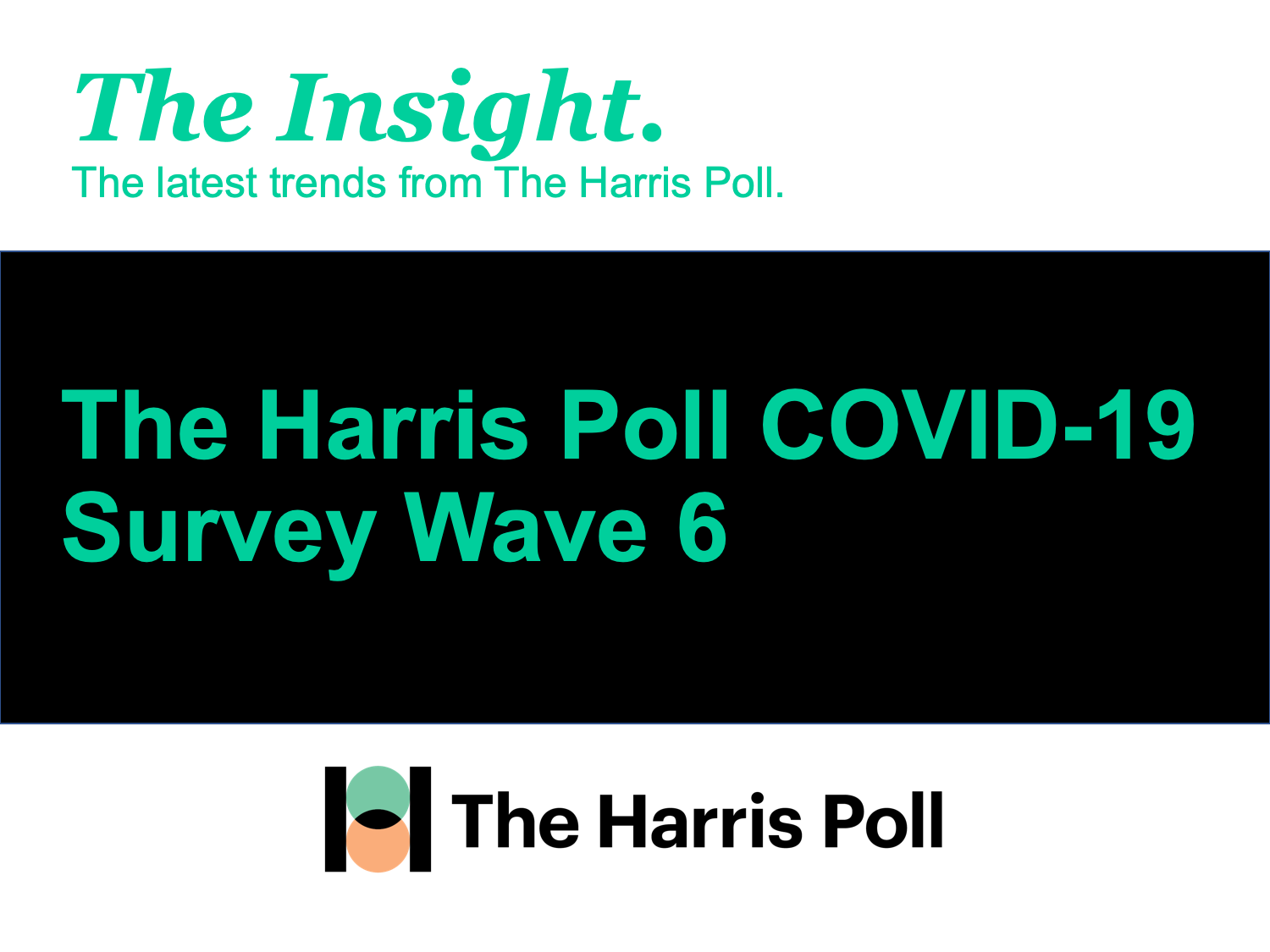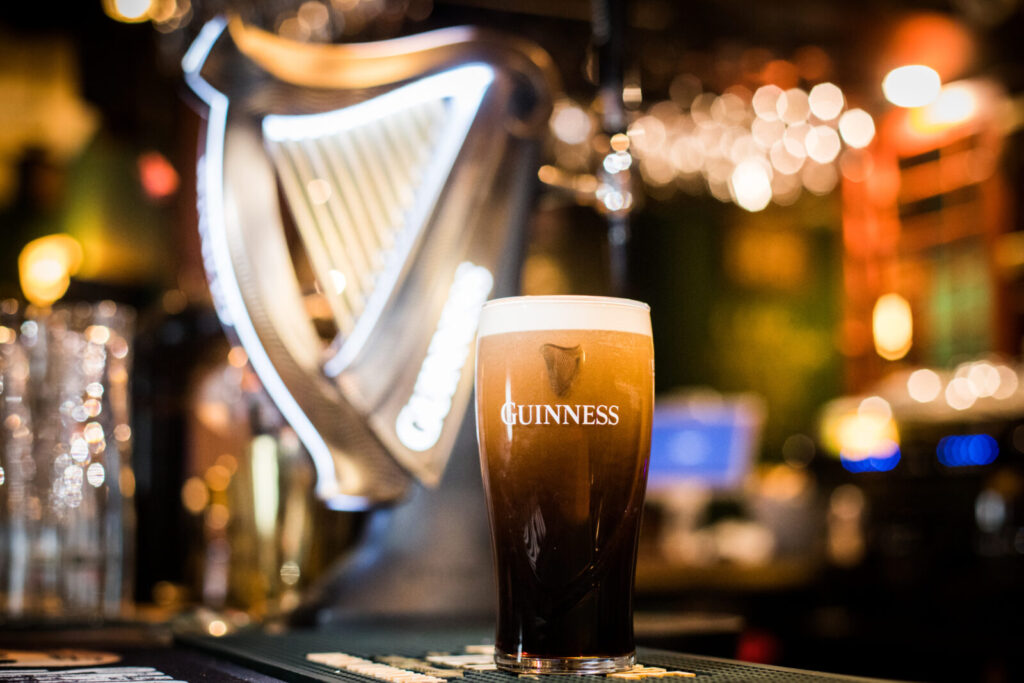Brief • 3 min Read

Good morning. In Wave 6 of The Harris Poll COVID-19 Tracker, six themes emerged: health vs income, time to reflect, economic fear, pent up demand, corporate reputation, and parenting via zoom.
Based on these themes, our team has curated key insights to help you navigate the coronavirus. Full survey results and business implications can be found at The Harris Poll COVID-19 Portal. We will continue to actively field and provide insights on a regular cadence to keep you informed of the shifts in sentiment and behaviors as the news and guidelines evolve.
There are Two Curves Americans Now Care About
As we enter into a possible ‘peak week’ in New York, perhaps it’s wrong to think about mitigation as a trade-off between human health and the economy. As they told us, Americans’ livelihoods are now also at risk amid the shutdown and this is becoming a matter of public health.
- Americans are struggling to pay bills: Over a quarter (27%) have missed (or will soon miss) a bill payment and ages 18-49 are more likely than those 50+ (37% vs. 16%).
- 60% say they can only survive for 1-6 months on their savings and 11% can’t live on their savings at all.
- Four in five Americans (42%) have lost income partially and a fifth (19%) entirely
Takeaway: The more we suppress the spread by suppressing the economy the harder the toll on American livelihoods and survival.
Taking Stock of What We’ve Got
While our emotions are laid bare, we as a nation are taking time to reflect, connect and to some extent, appreciate life interrupted:
- The majority of Americans (78%) have felt grateful to be around people they truly care about.
- More than three quarters (77%) have shown compassion (taking the time to check in with people they care about).
- A quarter of Americans are increasing the use of wellness and meditation apps, especially younger adults who feel most alienated and parents who feel most stressed!
Takeaway: Taking time to reflect in this time of crisis might just yield greater compassion and empathy in our relationships, our communities, and our national partisanship.
How Lives Are Changing
Fear continues to encompass the nation (56% of Americans fear they could die from coronavirus, up from 27% on March 14) and with uncertainty comes frustration: 54% feel angry that they don’t know when this will end. This fear and disruption is impacting all parts of our daily life and what we expect will have the biggest long-term effects:
- At home during a crisis and trying to work: more Americans start their day by rolling out of bed and jumping on the computer (56%) and (49%) wear PJs/sweatpants while working.
- 56% are actually working more now that they are home, an indication that PJ’s don’t equal laziness, but rather Americans are doing the best they can in an unprecedented time
- Almost two-thirds of Americans (62%) feel the economic impact of the pandemic will have a bigger effect on their lives and that of their families than COVID19 itself (38%)
Takeaway: Expect economic fear to soon overpower the health fear in America.
Pent up Demand Continues to Build
We told you Americans were squeamish about getting back out there. Yet amid America’s month of cabin fever, we are seeing desire emerge in between the cracks of fear. People do miss things obviously.
- The top three things Americans miss most are: dining out at restaurants/bars (51%), gathering with friends and family (49%) and shopping in stores (39%).
- Americans are also planning longer-term purchases: One in five (19%) say they are considering buying new household goods, furniture, or appliances and (16%) considering buying a car.
- Americans say they will prepare for something like this in the future by keeping more money in savings (59%); stockpiling non-perishable foods (33%) and making improvements to their living situation (18%).
Takeaway: Think about American resiliency in your marketing strategy, as there is likely a ‘whiplash’ effect about to happen as the first sign that things might return to some type of normal.
What A Company Does is More Important Than What it Says
States across the nation are struggling to address the pandemic as it takes different shapes and forms across communities. Americans are applauding firms who are leveraging their resources directly to help stop the spread, as well as protecting consumers affected indirectly and safeguarding employees.
- Over 9 in 10 Americans have improved opinions of companies that donate money, supplies or employee’s time to aid relief in communities (92%) and when a company shifts production to make equipment or supplies necessary to fight the pandemic (91%).
- 91% have improved opinions towards companies that allow customers to forgo payments for up to 6 months or offer lower interest rates or other programs.
- 84% have improved opinions of company executives who forgo salaries, bonuses or other compensation. In fact, 84% say large companies’ top priority should be keeping their employees safe, even if it means that customers need to wait to get their products.
Takeaway: Every corporate reputation will be redefined by the response to Cv19, don’t be limited by the constraints of your industry, regulation, etc to not re-think what you could mean to society at this moment.
Zoom Parenting And The Rise of Permissibility
We all know about helicopter parents. But now in the 24-7 hybrid house-conference room-
classroom, leniency is the new currency as at-home as parents try to preoccupy their kids during the workday to prevent zoom video bombs.
- As half of the parents (49%) have increased their use of virtual meeting sites, over a third (35%) say they have experienced kids making cameos on video or conference calls.
- Over half of parents (54%) have been giving in to more screen time to preoccupy kids since the stay-home orders and more than 2 in 5 Americans (43%) have been relying on more treats/snacks to keep their kids happy.
- Parents with kids in the household are 2x more likely than adults with no kids to increase consumption of gaming and other in-home entertainment to keep their kids busy (60% vs 33%).
Takeaway: Potential dislocation could be the new normal meaning Americans will rethink their homes as bunker-goers.
Subscribe for more Insights
Subscribe to our newsletter for the latest trends in business, politics, culture, and more.
Download the Data
This survey was fielded online among a nationally representative sample of 1,993 U.S adults from April 3-5, 2020.
Download
Subscribe for more Insights
Subscribe to our newsletter for the latest trends in business, politics, culture, and more.
Download the Data
This survey was fielded online among a nationally representative sample of 1,993 U.S adults from April 3-5, 2020.
DownloadRelated Content








